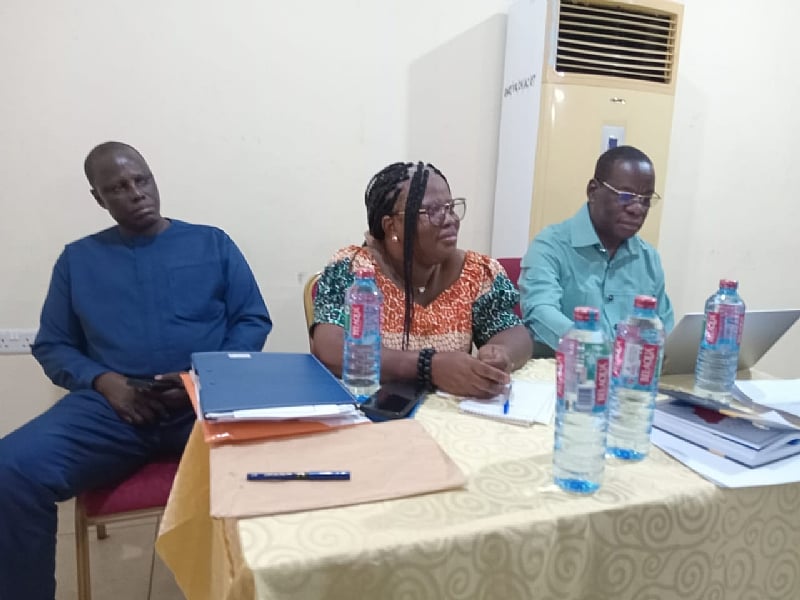The West African Examination Council (WAEC) has highlighted escalating five-year data on examination malpractice figures over the period 2020-2024 with damning statistics.
A total of 532,891 subject results were withheld according to WAEC with 38,693 results being cancelled and 462 entire results cancelled in the 2024 examination year.
The 2023 data churned out 587,001 results withheld, 59,433 cancelled and 658 entire results cancelled.
The 2022 and 2021 were not too different from the period preceding it with the 2020 statistics recording downscaling of 3,235 results withheld, 10,496 cancelled and 510 entire results being cancelled.
Mr Daniel Nii Dodoo, Head of Humanities, WAEC, Accra, disclosed these at the Volta/Oti segment dubbed “Engagement with major Stakeholders” in Ho, which featured Regional and District Directors of Education from the two sister regions.
Others include security agencies, teacher unions, and other relevant organisations.
He noted that examination malpractices posed a national security threat, which needed to be uprooted as it undermines integrity of the educational system with aggravated threat to society.
He described the situation as a form of unethical behaviour, aimed at gaining unfair advantage during assessments, which is on the rise in West Africa, fueled by socio-economic pressure, culture of impunity, and inadequate regulator frameworks.
He underscored that examination cheating lowers educational integrity, churns out ill-prepared and fundamentally incapable workforce, generates graduates lacking essential skills, which threatens national competitiveness and long-term development with aggravated future prosperity.
He said examination irregularities must not only be the preoccupation of WAEC but requires galvanizing a social force that includes the government, educational institutions, parents, communities, and students.
To mitigate the menace, Mr Dodoo called for multifaceted approaches such as strengthening regulatory frameworks, leveraging technology, engaging stakeholders, promoting ethical education, and implementing punitive measures.
He said government through the Ministry, Ghana Education Service must tackle the menace through policy development, resource allocation and public awareness campaigns.
Mr John Kapi, Head of Public Affairs, WAEC, Accra, in an interview with the Ghana News Agency disclosed that responses running through sessions already completed across the country include abhorrence to the school ranking policy requiring abolishment with resources distributed equitably to focal persons in monitoring examinations as well as fairness in BECE placement.
“We have appealed to GNAT, NAGRAT, and CHASS, who are the professional associations among the teachers and as technocrats, should come out with strategic roadmaps and suggest to the government to review policies that have been implemented and move to the next stage.
He said a stronger collaboration with all actors including government, House of Chiefs, security services, Directors of Education, students, teachers, Regional Managers of faith-based schools, who are key stakeholders in the administration of examination could mitigate the menace.
He disclosed in a video expose’ that exams cheating or irregularities have become more networked and sophisticated with collaborators deploying erudite measures to outwit the system, some of which are projecting answers, copying from mobile phones and tablets, introduction of foreign and external materials, dictating answers, money inducements, setting up syndicates to solve questions, impersonation, with the rarest being hiding in ceilings ostensibly to cheat.
He said WAEC is leveraging on Technology with the introduction of computer-based testing currently being piloted, believing that this mitigates the menace of exam cheating in addition to serialization and item randomization for the objective test with plans of replicating same with written text.
Mr Kapi indicated that the Council, in the near future, would roll out personalised question papers with barcodes and traceable features for each candidate to curb examination malpractices at the Basic and Senior High levels.
To strengthen the base of examination, he said a revised rules and regulations document has been made available and District Directors of Education are expected to be used aggressively to conscientize candidates in their jurisdictions on need to desist exam cheating.
Madam Irene Jacquelinda Attabra, Ag, Oti Regional Director of Education, said the findings were frightening but not beyond redemption and appealed to key actors to join the crusade to fight examination practices in the school system.
In an open forum, participants anonymously called for abolishing of the 70 per cent performance contract with school heads without corresponding infrastructure and others, ranking of schools should be done on even kilt, prompt payment of invigilators allowance, WAEC regulations apply evenly across board, accessibility of exam centres, punitive punishment on exam cheating aggressive awareness creation on the menace.
GNA


